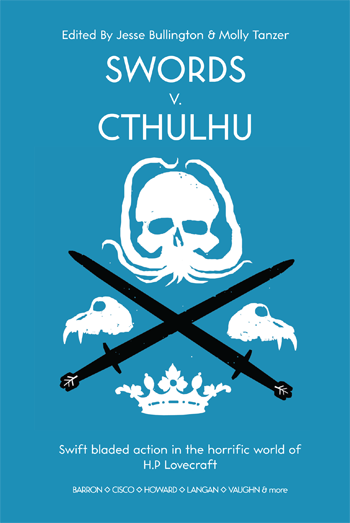As outlined in an earlier post, in the coming weeks I will be dedicating an entry to each story in the new anthology Swords v Cthulhu, edited by Molly Tanzer and Jesse Bullington and published by Stone Skin Press. My reviewing method will be peppered with the cultural associations that each of these stories inspire. These will be presented with no excuse, apology or editorial justification.

Of All Possible Worlds by Eneasz Brodski
We started this reviewing journey in Ancient Rome, and as we near its end we prove the adage that all roads do, indeed, lead back to the Eternal City.
However, Brodski’s take on the milieu is markedly different from that of Michael Cisco. Whereas the previous story slid in its weirdness among the Empire’s reputation for sterling military prowess and efficiency, here we are plunged into the city’s multicultural squalor — where violence and exploitation are the order of the day.
In other words, it’s less Neil Marshall’s Centurion and more Fellini’s Satyricon… with some mind-bending eldritch strangeness thrown in for good measure.
Still from Fellini Satyricon (1969)
Our protagonist Marad deals with peddling animals for gladiatorial shows, and though he does betray hints of a conscience about his chosen profession, hints are all that remain. In fact, the phrase, “I am sorry. You must die so that I may live. I don’t ask your forgiveness; this is the way of life. But know I wish this world was different,” ends up being something of an anchoring chorus throughout this dizzying narrative.
How this plays out when placed side-by-side with classic Lovecraftian cosmic indifference makes for a good thematic twist, which I won’t spoil. But more importantly for the rest of the tale, that other Lovecraftian trope — the power of nightmares — is employed to give the story an animating force.
A bit confusing at first, this device ultimately creates a sense of thrilling discombobulation, one that perfectly matches the sordid and chaotic social underbelly in which the story is set.
A story with grit and teeth, told by a surrealist street performer who would just as soon slit your throat for all your cash rather than simply accepting your busking tips.


